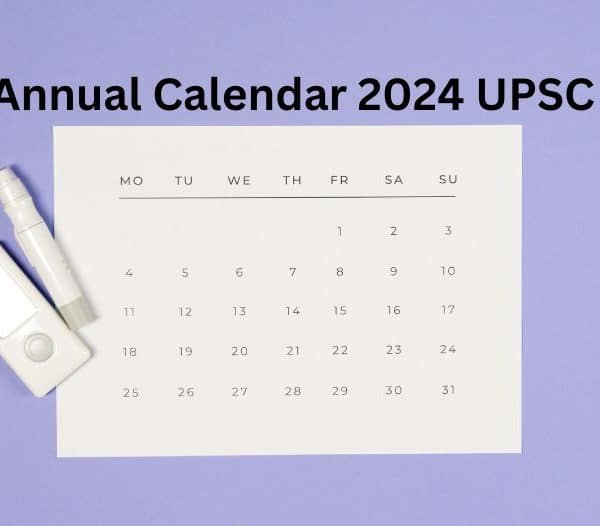Recruitment to the posts of UPSC enforcement officer (EO) and accounts officer (AO) is conducted by the Employee’s Provident Fund Organization(EPFO) under the Ministry of Labour and Employment.
It is a much-coveted post that has a permanent standing along with a handsome salary and multiple other subsidiary benefits. In 2017, a total of 1,46,004 applicants appeared for the EPFO examination, out of which only 257 candidates were selected out of all categories.
However, with the appropriate planning and a determined attitude, it is possible to crack the exam with flying colours. Given below are all necessary details about paper pattern, vacancies, selection procedure, and syllabus.
UPSC Enforcement Officer Exam Date 2021
The official notification for vacancies for the post of Enforcement Officer under EPFO was released on Jan 11, 2020, whereas the last date of application was Jan 31, 2020.
The UPSC enforcement officer exam date was released on April 1, 2021. The Official Recruitment Test or RT to the post of the Enforcement Officer is scheduled for May 9, 2021.
The time of the examination is scheduled from 10 am to 12 pm.
The admit card for the exam will be released 15 days before the date of examination. Follow the official website of UPSC closely to get updates on the publication of admit cards.
List of Vacancies
As of the examination notification published on Jan 11, 2020, there are a total of 421 vacancies under the post of UPSC enforcement officer. Out of these 421 vacancies, 168 seats are for general candidates, 62 for SC, 33 for ST, 116 for OBC, 42 for EWS, and a total of 11 for persons with physical disabilities.
Question Paper Pattern and Selection Procedure
Recruitment to the post of UPSC enforcement officer 2021 is done on the basis of a handwritten offline examination and an interview.
The written test is an MCQ Examination with Objective Type Questions which contains a total of 300 marks with each question carrying equal marks. Candidates will be penalized upon attempting a wrong answer with a deduction of one-third of the total marks.
Candidates are short-listed to appear for the interview on the basis of the written test. The interview contains a total of 100 marks.
The ratio of weightage of the written examination and the interview is 75:25. The final selection is made on the sum total of the marks obtained in the examination and the interview.
Also Read: Can You Crack the UPSC Exam Without Coaching? Quick Tips to do it at Home
Salary and Subsidiary Benefits
UPSC Enforcement Officers are liable to a payment under Level 8 in the pay matrix according to the 7th pay commission. The total salary, therefore, ranges from INR 47600 to INR 53312. Moreover, officers are also liable to other benefits such as Dearness Allowance(DR), House Rent Allowance(HRA), Medical facilities, travel facilities, and so on, which makes the job one that is much longed for.
Syllabus for UPSC EPFO Enforcement Officer Examination 2021
The syllabus for the examination for recruitment to the post of EPFO Enforcement Officer is quite vast, ranging from the English language to Social Sciences, General Aptitude and Mathematical Reasoning. The range of subjects can initially appear daunting for applicants. However, with correct strategizing and commitment to hard work, it is definitely possible to succeed.
The written test, which is called the General Ability Test-01, contains a total of 300 marks and roughly 150 questions. Wrong answers carry negative marks and are penalized.
The Syllabus
The syllabus for the written test is classified into nine subjects:
#General English
#Indian Freedom Struggle
#Current Events and Developmental Issues
#Indian Polity and Economy
#General Accounting Principles
#Industrial Relations and Labour Laws
#General Science and Knowledge of Computer Applications
#General Mental Ability and Quantitative Aptitude
#Social Security in India
The candidate will be tested on these nine broad subject matters following a multiple choice type question pattern.
Also Read: Environment and Ecology Books for UPSC: Here’s the Syllabus & the Best Books to Refer
How to Prepare for UPSC Enforcement Officer 2021 Examination?
# General English
This portion is a piece of cake for students from English medium backgrounds. However, for others, familiarising yourself with English grammar and syntax and reading enough comprehension passages before the actual examination will help you get through this section.
# Indian Freedom Struggle
A Brief History of Modern India Spectrum and History books by Lucent’s Publication will help you get an expansive idea about this section. NCERT books of 11th and 12th standards are effective in developing a basic framework and aiding your preparation.
# Current Events and Developmental Issues
Read newspapers like The Hindu and The Indian Express which provide a comprehensive and objective account of everyday news. The cherry on the top is that they are also available on the internet and maybe readily accessed.
# Indian Polity and Economy
NCERT books of 11 and 12 on Polity will prove useful to give you a basic grounding on the subject.
# General Accounting Principles
T.S. Grewals’s Double Entry Book Keeping, and books on Accounting by NCERT and Arihant Publishers are specially tailored for the UPSC competitive examinations.
# Industrial Relations and Labour Laws
Acquaint yourself with Labour and Developmental Laws with events ranging from ancient history till Contemporary times. With respect to this section, focus on reading newspapers and magazines to garner relevant information on current affairs.
# General Science and Knowledge of Computer Applications
NCERT books from standards 6 to 10 on General Science and Computer Applications are useful materials to help you comprehensively cover this portion.
# General Mental Ability and Quantitative Aptitude
Data interpretation, Syllogism, Number System, Ratio and Proportion, and Profit and Loss are some of the important topics from this subject area. With Mathematics, it is best to allocate a certain time span in the day to relentless practising.
# Social Security in India
No one or two books is sufficient to cover this section. Read ample resources on current affairs and keep yourself updated about everyday events pertaining to national security and international relations.
General Preparation Tips
Besides the above book recommendations, keep in mind the general preparation tips below to boost your confidence and set your ship sailing!
# Determination and Hard Work
These are not just proverbs. Being determined and working hard can fetch you things that might initially appear impossible. Some might be blessed with god-given qualities, but it is really self-imposed hard work that takes you far in life.
# Make a Routine
Before you set out to study, make a routine of your study time. Being organized is extremely important to crack any competitive exam. In the routine, decide how many hours you will study every day, which topics you will cover each day, which mock papers you will take, and so on. Set small milestones for your study schedule because achieving them will also boost your confidence. Make the routine well in advance, and following and progressing according to the routine will prove to be very beneficial.
# Stay Focused
You need to devise ways to stay focused and motivated. Remember, the whole course of the process goes on over a year which is a long time, making you prone to losing attention. But there is no reason to fret. With every milestone you achieve, treat yourself to little pleasures. It is alright to go out for two hours after a week of consistent studying. This will help rejuvenate energy and make you stay focused.
# Health
In the words of the great Pre-Socratic Greek thinker, Thales, “A sound mind in a sound body.” Your health is your utmost priority during this time as it will ensure freshness of mind. Eat well, stay hydrated, and get plenty of rest. Whatever you do, get a good 7-8 hours’ sleep. Even with that, you can get ample time to study.
Also Read: Top 7 Ultimate Revision Tips for IAS Exam: Get the Ball in Your Court in the Next UPSC
Conclusion
The post for UPSC Enforcement Officer 2021 is one which is in high demand. It offers security and stability owing to the permanent nature of the position. If you are striving to appear for this examination, make sure you familiarise yourself with the examination norms which have been laid out in this article. Although getting through might appear a long shot, maintaining a resilient attitude will ensure that you are rewarded at the end. Strategizing correctly and following a routine are two vital ways to combat any competitive exam. Keep watching this space to learn more about effective tips to achieve success in the UPSC examinations.
If you are seeking more advice for your upcoming UPSC Exams, make sure to follow UPSC Pathshala to ease your journey with guaranteed results.
All the best!







Amazing article, such a great help
Thank you for writing such amazing articles.